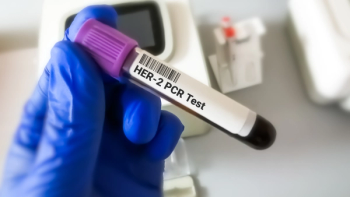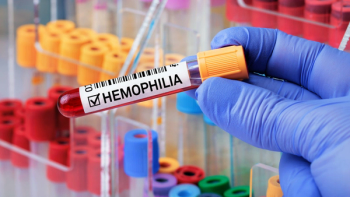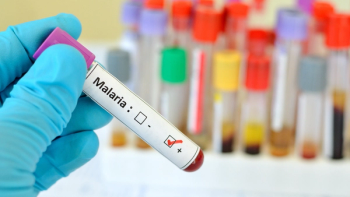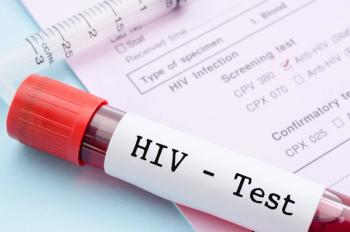
Approval of Tivdak was based on promising results from a Phase III innovaTV 301 clinical trial, which demonstrated a 30% reduction in the risk of death in patients with recurrent or metastatic cervical cancer.


Approval of Tivdak was based on promising results from a Phase III innovaTV 301 clinical trial, which demonstrated a 30% reduction in the risk of death in patients with recurrent or metastatic cervical cancer.

Approval of Libervant marks the first orally administered rescue medication for this age group to be cleared by the FDA for epilepsy.

Hercessi marks Accord BioPharma’s first biosimilar to be approved in the United States, with multiple indications for HER2-overexpressing breast and gastric cancers.

Approval update comes as a result of findings from Study 5310, which addressed Biktarvy’s pharmacokinetics, safety, and efficacy during pregnancy and postpartum periods in patients with HIV.

Beqvez, a one-time gene therapy, offers hope to patients with moderate to severe hemophilia B who use regular factor IX prophylaxis, suffer severe hemorrhages, or recurrent serious bleeding.

Companies reported that the new formulation of Coartem met required pharmacokinetic profiles and displayed promising efficacy and safety treating malaria in infants.

Pivya has shown efficacy against bacteria strains such as Escherichia coli, Proteus mirabilis, and Staphylococcus saprophyticus.

Sanders wrote a letter to Novo Nordisk announcing the investigation.

Company aims to provide affordable emergency treatment from overdoses of heroin, fentanyl, and prescription opioids.

Ojemda is the first systemic therapy approved by the FDA for the treatment of relapsed or refractory pediatric low-grade glioma harboring a BRAF fusion or rearrangement, or a BRAF V600 mutation.

Lutathera is the first FDA-approved treatment for younger patients with somatostatin receptor-positive gastroenteropancreatic neuroendocrine tumors.

Approval comes amid positive results of a single-arm trial, showing a complete response rate of 77% in patients with Bacillus Calmette-Guérin-unresponsive non-muscle invasive bladder cancer.

Approval was based on positive data from Takeda’s Phase III VISIBLE 2 study, which displayed long-term clinical remission in approximately half of patients with Crohn disease receiving Entyvio.

Data from the Phase III ALINA trial show that Alecensa reduced the risk of disease recurrence or death by 76% vs. platinum-based chemotherapy in patients with completely resected IB to IIIA ALK-positive non–small cell lung cancer.

Importing drugs from Canada may increase the risk of US citizens being exposed to unsafe medicines.

With a final decision expected next February, MenABCWY combines the protective elements of GSK’s existing vaccines to target the five primary serogroups of Neisseria meningitidis.

Alvotech’s and Teva's Selarsdi (ustekinumab-aekn), the second FDA-approved biosimilar to Stelara, is indicated to treat patients aged 6 years and above with moderate to severe plaque psoriasis who are candidates for phototherapy or systemic therapy and for patients aged 6 years and above with active psoriatic arthritis.

New methods allow the antiseizure treatment to be crushed and mixed with water for oral suspension or for use through a nasogastric tube.

Treatment was initially approved in 2017 for the same indication in children aged 12 and up.

Decree comes amid the FDA’s 2021 inspection of Philips’ Murrysville facility and the subsequent voluntary recall of its sleep and respiratory care devices.

Dovato is the first oral, two-drug, single-tablet regimen approved for patients 12 years of age and older who are living with HIV-1.

According to the letter, the FDA believes that the investigational apomorphine infusion device is not ready for approval in its current form.

The approval of AstraZeneca’s and Daiichi Sankyo's Enhertu (trastuzumab deruxtecan) for adults with unresectable or metastatic HER2-positive solid tumors adds to the drug's approved indications in breast cancer, non-small cell lung cancer, and gastroesophageal junction adenocarcinoma.

Decision to discontinue marketing authorizations for Relyvrio/Albrioza comes as a result of topline results from the Phase III PHOENIX trial in patients with amyotrophic lateral sclerosis.

Abecma was found to triple progression-free survival compared to standard regimens with a 51% decline in the risk of disease progression or death in patients with relapsed or refractory multiple myeloma who were previously administered two or more lines of therapy.